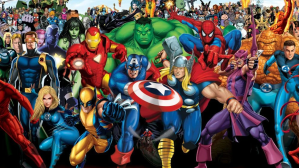The iconic Australian accents and lingo featured in Bluey almost didn’t make the trip to North America. The most popular kids show on the planet, Bluey has become a staple for families everywhere, and the specific voices of the Heeler family are already iconic. Many of the phrases the characters use have even started to become more common in the United States thanks to the series. There was a chance, however, that the enormous Stateside fanbase might never have heard the show’s natural Australian voices.
Videos by ComicBook.com
Before Bluey made its way to the US, executives and producers debated about whether or not to record American actors to dub over the Australian voices in order to make it more accessible for American audiences. Thankfully, that idea didn’t prevail.
Actress and singer Meg Washington, who voices Calypso on Bluey, revealed on a recent interview with KIIS 97.3 that the accent issue was a real internal debate before the show’s American release.
“I remember 100 years ago, when I was in the Ludo offices and the question of the day, or the problem of the day was, were they going to have to dub the show into an American accent for American audiences,” Washington explained. “It was the true question of the day: ‘How are we going to deal with this? What’s going to happen?’”
Since debuting in 2018, the Heeler family has become one of the most popular groups of characters on television, and Bluey has become a staple of households around the world.
“It’s been amazing. For me, the most incredible part of it is being a part of a show that is having such a beautiful social impact, that is actually putting good out into the world,” Melanie Zanetti, who voices Bluey’s mom, Chili, told ComicBook. “As an actor, you do a lot of stuff and you’re like ‘Does any of this matter? I’m not doing brain surgery; I’m not doing aid work — does this have meaning?’ And then to have a show where I’ve had so many parents tell me, ‘This has taught me how to play with my kids,’ or dads saying, ‘this has taught me how to parent the way I want to parent.’ I had a teacher who told me they had a student with Autism in their class, and it taught this little boy how to play with other kids and has changed his life at school. When I hear things like that, it makes me go, ‘Okay, this is important and useful as well as entertaining and fun and beautiful,’ and I think for me, that is the most exciting thing.”








